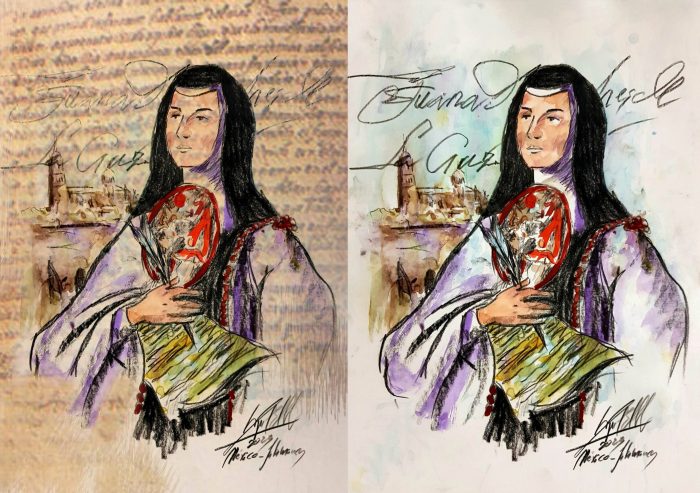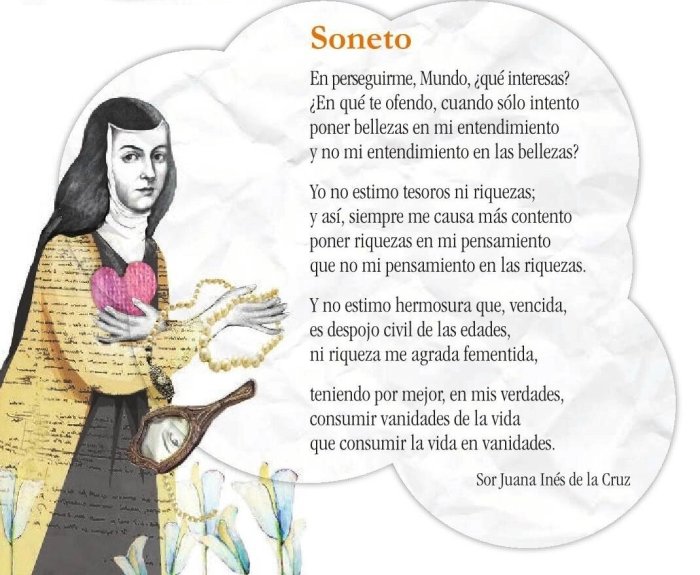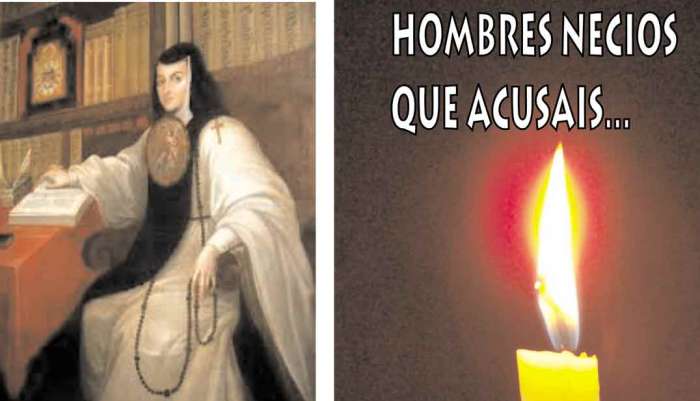Sor juana inés dela cruz hombres necios – Sor Juana Inés de la Cruz’s “Hombres Necios” is a powerful and thought-provoking poem that critiques the ignorance and hypocrisy of men. Written in the 17th century, the poem challenges traditional gender roles and expectations, empowering women and advocating for their intellectual equality.
Through irony, satire, and wit, Sor Juana exposes the double standards and contradictions in the way that men view and treat women. She argues that men are quick to criticize women for their perceived shortcomings while ignoring their own faults.
The poem is a powerful indictment of male hypocrisy and a celebration of female intelligence and strength.
Sor Juana Inés de la Cruz’s Critique of Male Ignorance and Hypocrisy

Sor Juana Inés de la Cruz was a renowned Mexican poet, playwright, and intellectual of the 17th century. Her poem “Hombres necios que acusáis” (Foolish Men Who Accuse) is a powerful critique of male ignorance and hypocrisy.
In the poem, Sor Juana argues that men are quick to criticize women for their supposed intellectual inferiority, while they themselves are often guilty of the same shortcomings. She uses irony, satire, and wit to convey her message, pointing out the absurdity of men’s claims to superiority.
The Feminist Perspective in “Hombres necios que acusáis”, Sor juana inés dela cruz hombres necios
Sor Juana’s poem challenges traditional gender roles and expectations. She argues that women are just as capable as men of intellectual achievement, and that they should be given the same opportunities for education and self-expression.
The poem empowers women and advocates for their intellectual equality. Sor Juana uses language and imagery to convey her feminist message, such as the metaphor of the “weak vessel” to describe women, which she turns on its head to argue that women are actually stronger than men.
The Historical and Cultural Context of “Hombres necios que acusáis”
Sor Juana wrote “Hombres necios que acusáis” during the Baroque period, a time of great social and cultural change. The Counter-Reformation was underway, and the Church was seeking to reassert its authority over society.
Sor Juana’s poem reflects the gender dynamics and intellectual debates of her time. She was a woman living in a patriarchal society, and she used her writing to challenge the status quo and advocate for women’s rights.
The Literary and Artistic Legacy of “Hombres necios que acusáis”
Sor Juana’s poem has had a profound impact on Mexican and Latin American literature. It is considered one of the most important works of feminist literature, and it has been translated into many languages.
The poem has been interpreted and reinterpreted over time, and it has influenced other works of art, including music, painting, and theater. Sor Juana’s legacy as a feminist writer and intellectual continues to inspire women around the world.
FAQ: Sor Juana Inés Dela Cruz Hombres Necios
Who was Sor Juana Inés de la Cruz?
Sor Juana Inés de la Cruz was a Mexican nun, poet, playwright, and philosopher who lived in the 17th century. She is considered one of the most important figures in Latin American literature.
What is the main theme of “Hombres Necios”?
The main theme of “Hombres Necios” is the critique of male ignorance and hypocrisy. Sor Juana argues that men are quick to criticize women for their perceived shortcomings while ignoring their own faults.
How does Sor Juana use irony and satire in “Hombres Necios”?
Sor Juana uses irony and satire to expose the double standards and contradictions in the way that men view and treat women. For example, she writes, “Men, who accuse women of being fickle, / Are themselves the ones who are always changing.”
This line satirizes the hypocrisy of men who criticize women for their perceived fickleness while they themselves are often guilty of the same behavior.


